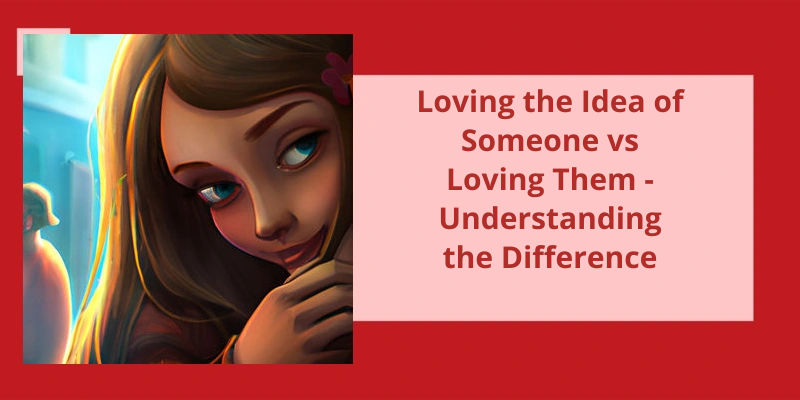As human beings, we’re naturally wired to seek goodness and strive for a life full of meaning and purpose. It's an innate desire deeply rooted within us, to do good to others, to make a positive impact in the world, and to leave a lasting legacy that will be remembered long after we're gone. In today's world, where the focus often seems to be on personal gain and materialism, it's easy to forget the simple pleasures of life and the importance of compassion, empathy, and generosity towards others. But when we choose to embrace the power of goodness, we awaken a force that’s the ability to change the world for the better. So let's all make a conscious effort to be kind, compassionate, and generous, and let the spirit of goodness guide us in everything we do.
Is It Correct to Say I’m All Good?
In America, the phrase “Im all good” isn’t commonly used. It’s more likely that youll hear someone say “Im good” or “everything is good.”. However, thats not to say that the phrase is grammatically incorrect. It’s just not a phrase that’s commonly used in American English.
On the other hand, “its all good” is a common expression in English. In fact, it’s become somewhat of a catchphrase in modern culture. The phrase is often used to convey a sense of reassurance or the idea that everything is going to be okay. It’s a way to put someones mind at ease, or to let them know that a certain situation isn’t as bad as they may think.
There are a number of other variations of this phrase as well. For example, you might hear someone say “no worries” or “dont sweat it” to convey the same sort of sentiment. At the end of the day, language is all about communication, and as long as youre able to effectively convey your intended meaning, the actual words you use don’t always matter all that much.
That being said, it’s important to note that language is constantly evolving. Just because a phrase isnt used commonly today doesn’t mean that it won’t become more popular in the future. Only time will tell.
Similar Expressions in Other Languages and Cultures That Convey the Same Sense of Reassurance
This topic explores different expressions from various languages and cultures that convey similar meanings of reassurance.
However, interpreting someone’s true intentions behind saying “it’s all good” can be a bit tricky. Depending on the tone of voice and context, the phrase could be used to dismiss or downplay an issue, express genuine forgiveness, or even convey annoyance or frustration. In this article, we will take a closer look at the different meanings behind this common expression.
What Does a Guy Mean When He Says It’s All Good?
When a guy says “its all good,” it typically means that there are no issues or problems between the two of you. It’s a casual way of letting you know that whatever may have happened is no big deal and that he’s not bothered by it. In most situations, this phrase is used to put someone at ease if they’ve apologized for something, or if there was an awkward moment that needed to be diffused.
Occasionally, a guy may use the phrase “its all good” in a sarcastic or passive-aggressive way. In these cases, it’s important to pay attention to tone of voice and body language to determine the true meaning behind the words. It’s also important to consider the context of the situation and any other behaviors that the person may be exhibiting.
How to Differentiate Between Sincere and Sarcastic Use of the Phrase “It’s All Good”
It can be difficult to differentiate between sincere and sarcastic use of the phrase “it’s all good”. To determine the sincerity, pay attention to the tone of voice and the context in which the phrase is used. If the tone is genuine and the phrase is used in a positive or neutral context, it’s likely sincere. However, if the tone is mocking or the phrase is used in a negative or frustrating context, it’s likely sarcastic.
Source: How to Use the Expressions “I’m Just Saying” and “It’s All Good”
Now, the man wants to know if the woman is still upset with him or if they’re good and can continue as normal. This phrase could also be used in a business setting to ensure that everything is in order and there are no outstanding issues that need to be addressed. Overall, “Are we good?” is a commonly used phrase that can convey a variety of meanings depending on the context in which it’s used.
What Does the Phrase Are We Good Mean?
The woman may ask the man if they’re good to ensure that they’ve resolved their issue and that there are no hard feelings between them. In this context, “Are we good?” is a question that seeks reassurance that any conflicts have been resolved and that the relationship between the two parties is still strong. It’s a way to confirm that everything is okay and that they’re still on good terms. This phrase is often used in interpersonal relationships and signifies a desire to maintain positive interactions with the other party.
Example A manager and an employee are discussing a work-related issue. The manager may ask the employee if they’re good after addressing any concerns or criticisms. This is a way for the manager to ensure that the employee isn’t upset or resentful, and that they’ve been able to resolve any problems in a satisfactory manner.
Two friends have made plans to do something together, but one of them cancels at the last minute. The other friend may ask if they’re good to make sure that there are no hard feelings and that their friendship is still intact.
The phrase is often used as a means of reassurance and to signify that the relationship in question is still a positive and stable one. it’s a short but powerful phrase that can help to maintain strong connections between individuals.
The phrase “all good” is a commonly used expression that suggests everything is fine and there are no issues to worry about. However, repeating the same phrase can become tiresome and repetitive. Luckily, there are several alternatives that you can use instead to express the same sentiment. In this article, we’ve compiled a list of these options for you to consider.
What Can I Say Instead of All Good?
When it comes to expressing positivity or agreement, there are numerous phrases one can use instead of simply saying “all good.”. Using a variety of expressions can make conversations more interesting and prevent boredom. Some examples include saying, “its fine,” “no problemo,” or “thats ok.”. These phrases convey a sense of approval or agreement and are easy to remember.
Another phrase that can be used instead of “all good” is “its all right.”. This phrase is commonly used to express comfort or reassurance. It can also imply that everything is under control and that there are no immediate issues.
For a light-hearted expression of positivity, one can use the phrase “hakuna matata”. This phrase originates from the Swahili language and has become popularized by the Disney movie “The Lion King.”. It translates to “no worries” and is often used to reassure someone that everything will be okay.
When expressing positivity in an Australian context, the phrase “shell be apples” is often used. This phrase is said to have originated from the migrant fruit-picking community in the 1960s and has since become a well-known expression in Australia. It means that everything is going to be fine and there’s nothing to worry about.
Saying “not at all” is another phrase that can be used to show positivity or agreement. This phrase can be used to express gratitude and is often used in response to a “thank you”. It can also be used to indicate that something wasn’t difficult or problematic at all.
Lastly, when someone says “my pleasure,” it’s another way of expressing positivity. It’s often used when someone is thanked for doing something or providing a service. The phrase conveys a sense of satisfaction in being able to help or provide.
Whether it be “hakuna matata” or “my pleasure,” these phrases can add a welcomed variety to conversations and make the interaction more interesting.
Other Synonyms for “All Good” Such as “No Worries,” “No Problem,” or “Everything’s Cool”
There are various phrases that can be used instead of “all good” such as “no worries,” “no problem,” or “everything’s cool.” These expressions are often used to convey a message that everything is fine or that there’s no need to worry about anything.
Now that we’ve explained what “it’s all good” means, let’s take a deeper look at it’s origins and how it’s used in different contexts. From it’s humble beginnings in African American Vernacular English to it’s widespread use in popular culture, this phrase has a fascinating history. So, let’s delve into it and explore the nuances of this ubiquitous expression.
What Does It’s All Good Here Mean?
It’s all good here is a phrase that can be used to communicate a sense of calm and ease. Often, it’s used when someone wants to communicate that there isnt any reason to be worried or upset. Sometimes, this phrase is used to defuse tense situations or to acknowledge that something has gone wrong but that it isnt a big deal.
One way that this phrase is used is to reassure someone that they don’t need to be concerned. For example, if a friend is worrying about an upcoming exam or presentation, you might say “Dont worry, it’s all good here.”. This communicates a sense of confidence and helps to reassure your friend that everything is going to be okay.
Another way that the phrase is used is to acknowledge a mistake or problem but to minimize it’s impact. For example, if someone accidentally spills a drink on your carpet, you might say “It’s all good, don’t worry about it.”. This communicates that you don’t think the mistake is a big deal and that you don’t want the other person to feel bad about it.
The phrase can also be used as a way to deflect criticism or to avoid getting into an argument. For example, if someone is upset with you about something, you might say “I understand why youre upset, but it’s all good now, lets move on.”. This communicates that you acknowledge the other persons feelings but that you don’t want to dwell on the negative and you want to move forward.
Overall, the phrase “its all good here” is a versatile and useful phrase that can be used in a variety of situations. Whether you’re trying to reassure someone, minimize a mistake, or avoid an argument, this phrase can help to defuse tense situations and keep the peace. Just remember to use it in informal situations and with people that you’re comfortable with, as it might come off as too casual or dismissive in certain contexts.
Conclusion
In summary, it’s important for us to recognize and acknowledge the innate goodness within ourselves and others. While we may sometimes get caught up in negative emotions and behaviors, we must remember that at the core, we all possess a natural inclination towards goodness and compassion. By nurturing and cultivating this aspect of ourselves and spreading kindness and positivity to those around us, we can create a ripple effect of positivity and make the world a better place. Ultimately, the belief in the inherent goodness of humanity can bring us closer together and foster a sense of unity and understanding despite our differences.






